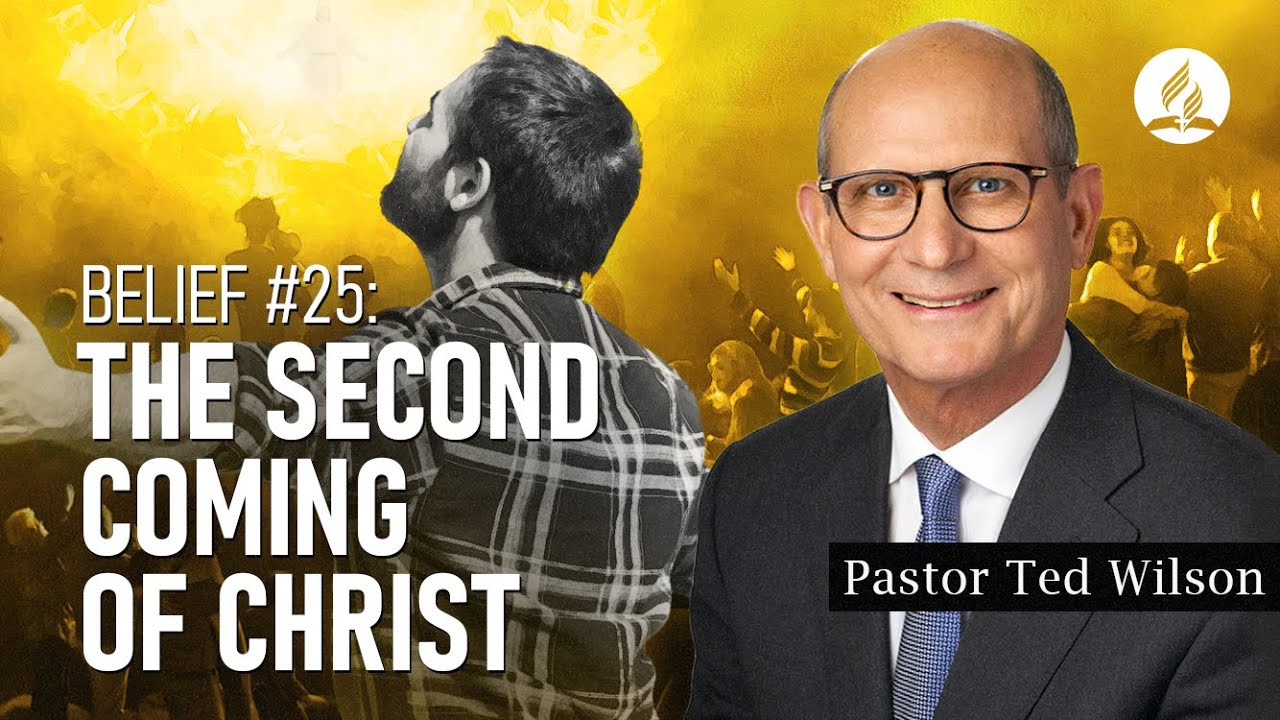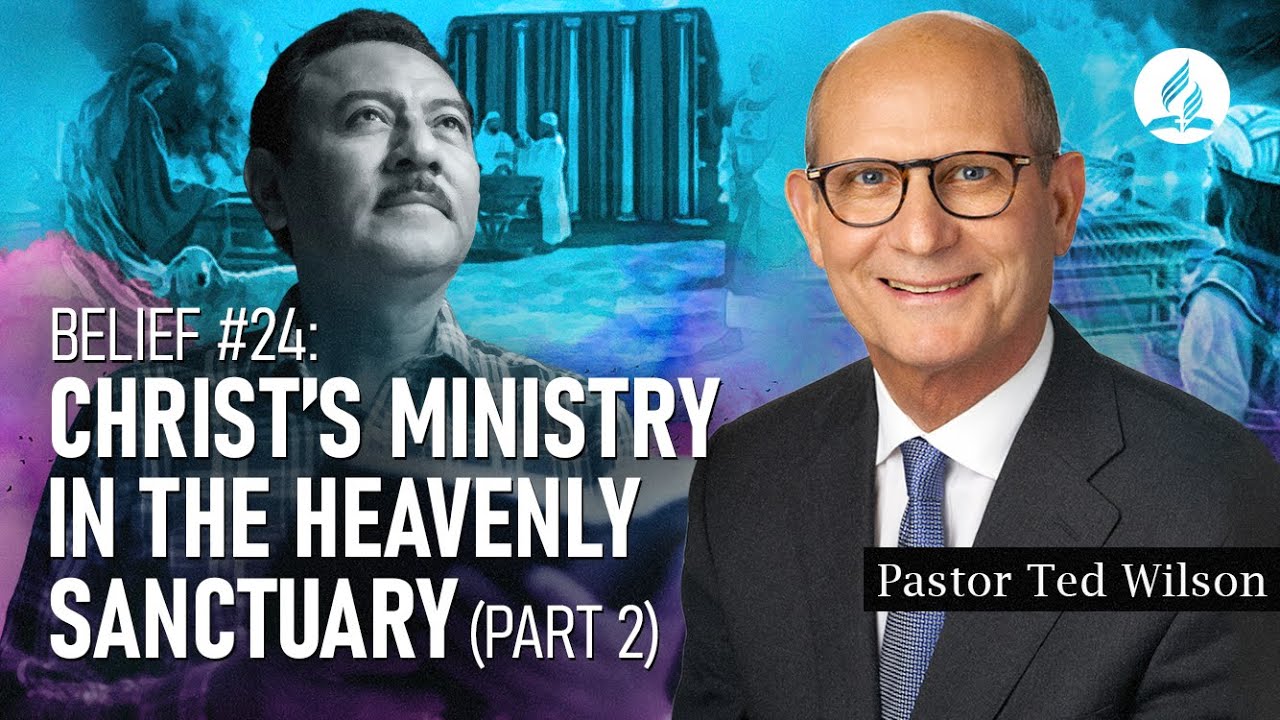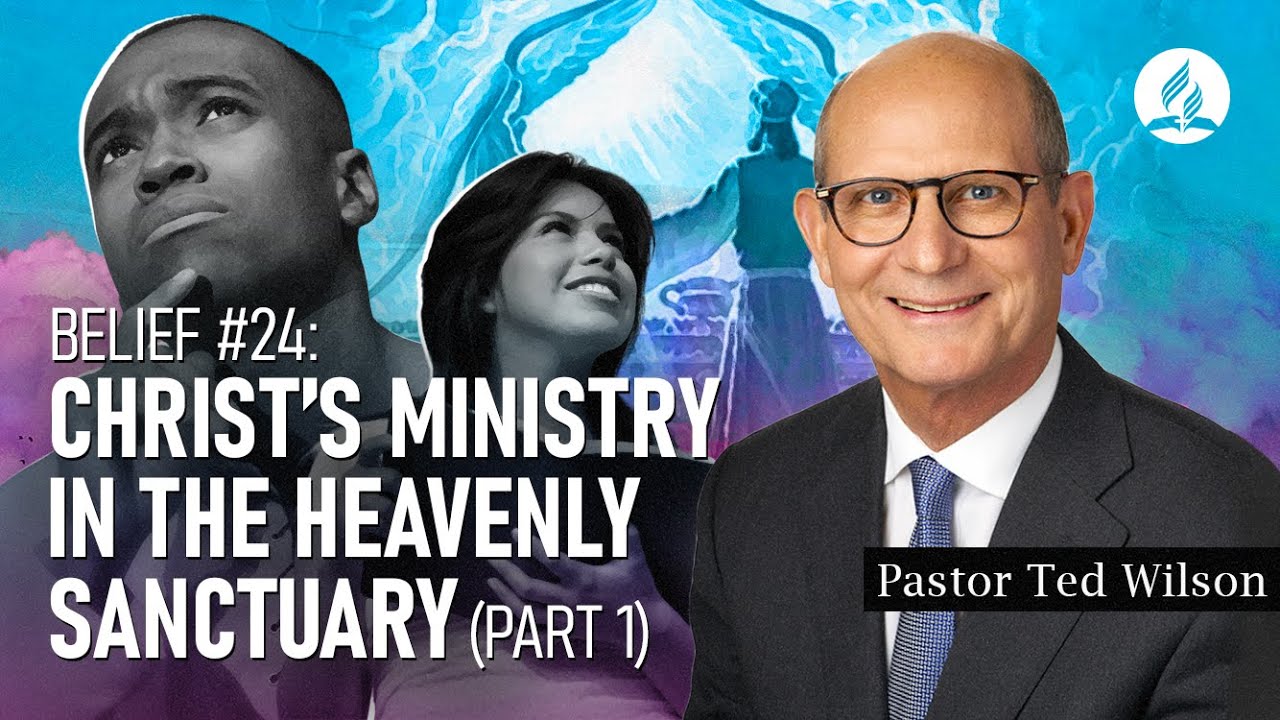
In this episode, Pastor Ted Wilson answers the question, “Who is God?”
God is a mystery, but He reveals Himself to those who are willing to see through the eyes of faith. He reveals Himself in two ways.
One is through Creation. In Psalm 19:1-3, David says, “The heavens declare the glory of God; and the firmament shows His handiwork. Day unto day utters speech, and night unto night reveals knowledge. There is no speech nor language where their voice is not heard.”
The Creator’s hand is visible throughout nature. From the stars in the heavens to the creatures of the deepest sea, His amazing design can be seen.
Now, the second way is through the Scriptures. Through the Word, God’s supreme revelation is seen through the life and death of Jesus Christ. Through Him, we can know the Father. 1 John 5:20 says, “The Son of God has come and has given us an understanding that we may know Him Who is true.” Also, “This is eternal life that they may know You, the only true God, and Jesus Christ Whom You have sent” (John 17:3).
When we seek to know God from the Bible, we can’t place ourselves above Him and treat Him as an object to study, analyze, and quantify. We must submit to the authority of His self-revelation.
One way the Bible reveals God is through His recorded names. For instance, the Old Testament names Him El Elohim, which means “God.” It also identifies Him as El Elyon, meaning “God Most High,” and Adonai, signifying “Lord” or “Master.” He also has the name El Shaddai, translating to “God Almighty,” and Yahweh, emphasizing His self-existent nature and faithfulness. Meanwhile, in the New Testament, Jesus uses the name Father to bring us into a closer, personal relationship with God.
God’s activities give us a glimpse into who He is. Hebrews 1:3 shows Him “upholding all things by the word of His power.” Isaiah 46:11 and Jeremiah 29:11 reminds us that God makes plans. Isaiah 46:10 says He declares “the end from the beginning.” Also, He is faithful to forgive our sins if we confess to Him, as promised in Deuteronomy 15:6 and 1 John 1:9.
In addition, we read in Exodus 34:6-7, “The Lord, the Lord God, merciful and gracious, longsuffering, and abounding in goodness and truth, keeping mercy for thousands, forgiving iniquity and transgression and sins, by no means clearing the guilty…” Indeed, God is a God of mercy and justice.
God is self-existent, for He has “life in Himself” (John 5:26). He is omniscient, for He knows the end from the beginning being the “Alpha and Omega” (Revelation 1:8). Also, He is omnipresent, for He transcends space and time and is present everywhere all the time (Psalm 139:7 and Hebrews 4:13). Lastly, He is omnipotent, for He is all-powerful. Nothing is impossible with Him. He is unchangeable and perfect (Malachi 3:6).
While there is one God, there is plurality within the Godhead. The second Seventh-day Adventist Fundamental Belief states, “There is one God: Father, Son, and Holy Spirit, a unity of three coeternal Persons. God is immortal, all-powerful, all-knowing, above all, and ever present. He is infinite and beyond human comprehension, yet known through His self-revelation. God, Who is love, is forever worthy of worship, adoration, and service by the whole creation” (adventist.org/beliefs).
The three Persons of the Godhead were together during the incarnation of Jesus Christ. Here, the Father gave His Son (John 3:16), Christ gave Himself (Galatians 1:4), and the Spirit gave Jesus birth (Matthew 1:18, 20).
Another instance where they were all present was the baptism of Jesus. The Father stated, “This is My beloved Son, in Whom I am well pleased” (Matthew 3:17). Christ gave Himself to be baptized as our example (Matthew 3:13-15). And the Spirit empowered the Son as He descended upon Him in the form of a dove (Luke 3:21, 22).
Before His death, Jesus promised to send the Holy Spirit as the Helper (John 14:6). Also, He commanded His church to baptize “in the name of the Father, and of the Son, and of the Holy Spirit” (Matthew 28:19).
Today, the Father and the Son reach out to us through the Holy Spirit. Jesus said, “When the Helper comes, Whom I shall send to you from the Father, He will testify of Me” (John 15:26). In 2 Corinthians 13:14, we have the beautiful blessing—”The grace of the Lord Jesus Christ, and the love of God, and the communion of the Holy Spirit be with you all. Amen.”
Finally, Ellen White tells us, “There are three living Persons of the heavenly trio; in the name of these three great powers—the Father, the Son, and the Holy Spirit—those who receive Christ by living faith are baptized, and these powers will cooperate with the obedient subjects of heaven in their efforts to live the new life in Christ” (Evangelism, p. 615).
To learn more about who God is, find helpful resources at adventist.org/beliefs.
(Visited 47 times, 1 visits today)








![Belief #23: Marriage and the Family [What Does God Intend Them to Be?] – Pastor Ted Wilson](https://fulfilleddesire.net/wp-content/uploads/2023/05/belief-23-marriage-and-the-famil.jpg)
![Belief #22: Christian Behavior [How Does God Want Us to Live Life?] – Pastor Ted Wilson](https://fulfilleddesire.net/wp-content/uploads/2023/05/belief-22-christian-behavior-how.jpg)
![Belief #21: Stewardship [What is It and What Does God Teach Us?] – Pastor Ted Wilson](https://fulfilleddesire.net/wp-content/uploads/2023/05/belief-21-stewardship-what-is-it.jpg)
![Belief #20: Sabbath [What Does the Bible Teach Us About It?] – Pastor Ted Wilson](https://fulfilleddesire.net/wp-content/uploads/2023/05/belief-20-sabbath-what-does-the.jpg)
![Belief #19: The Law of God [What is It and How Significant is It to Us?] – Pastor Ted Wilson](https://fulfilleddesire.net/wp-content/uploads/2023/05/belief-19-the-law-of-god-what-is.jpg)
![Belief #18: Gift of Prophecy [What is It?] – Pastor Ted Wilson](https://fulfilleddesire.net/wp-content/uploads/2023/05/belief-18-gift-of-prophecy-what.jpg)
![Belief #17: Spiritual Gifts and Ministries [What Does the Bible Say?] – Pastor Ted Wilson](https://fulfilleddesire.net/wp-content/uploads/2023/05/belief-17-spiritual-gifts-and-mi.jpg)
![Belief #16: The Lord’s Supper [What Does the Bible Say?] – Pastor Ted Wilson](https://fulfilleddesire.net/wp-content/uploads/2023/05/belief-16-the-lords-supper-what.jpg)
![Belief #15: Baptism [What Does the Bible Want Us To Know About It?] – Pastor Ted Wilson](https://fulfilleddesire.net/wp-content/uploads/2023/05/belief-15-baptism-what-does-the.jpg)
![Belief #14: Unity in Christ [What Does the Bible Teach Us?] – Pastor Ted Wilson](https://fulfilleddesire.net/wp-content/uploads/2023/05/belief-14-unity-in-christ-what-d.jpg)
![Belief #13: The Remnant [What is It and Its Mission?] – Pastor Ted Wilson](https://fulfilleddesire.net/wp-content/uploads/2023/05/belief-13-the-remnant-what-is-it.jpg)
![Belief #12: Church [What Does the Bible Teach Us About It?] – Pastor Ted Wilson](https://fulfilleddesire.net/wp-content/uploads/2023/05/belief-12-church-what-does-the-b.jpg)
![Belief #11: Growing in Christ [What Does It Mean and How Does It Happen?] – Pastor Ted Wilson](https://fulfilleddesire.net/wp-content/uploads/2023/05/belief-11-growing-in-christ-what.jpg)